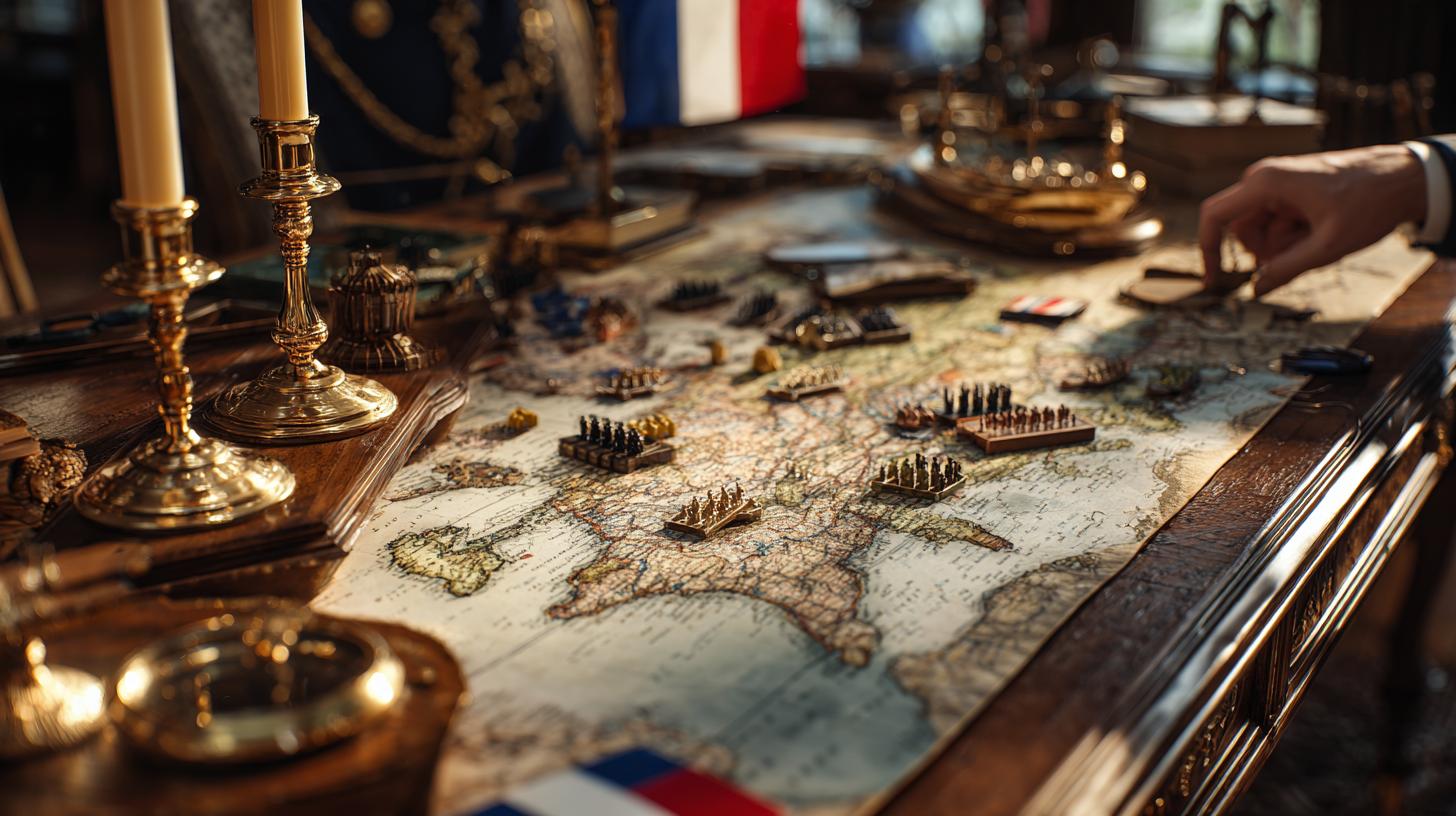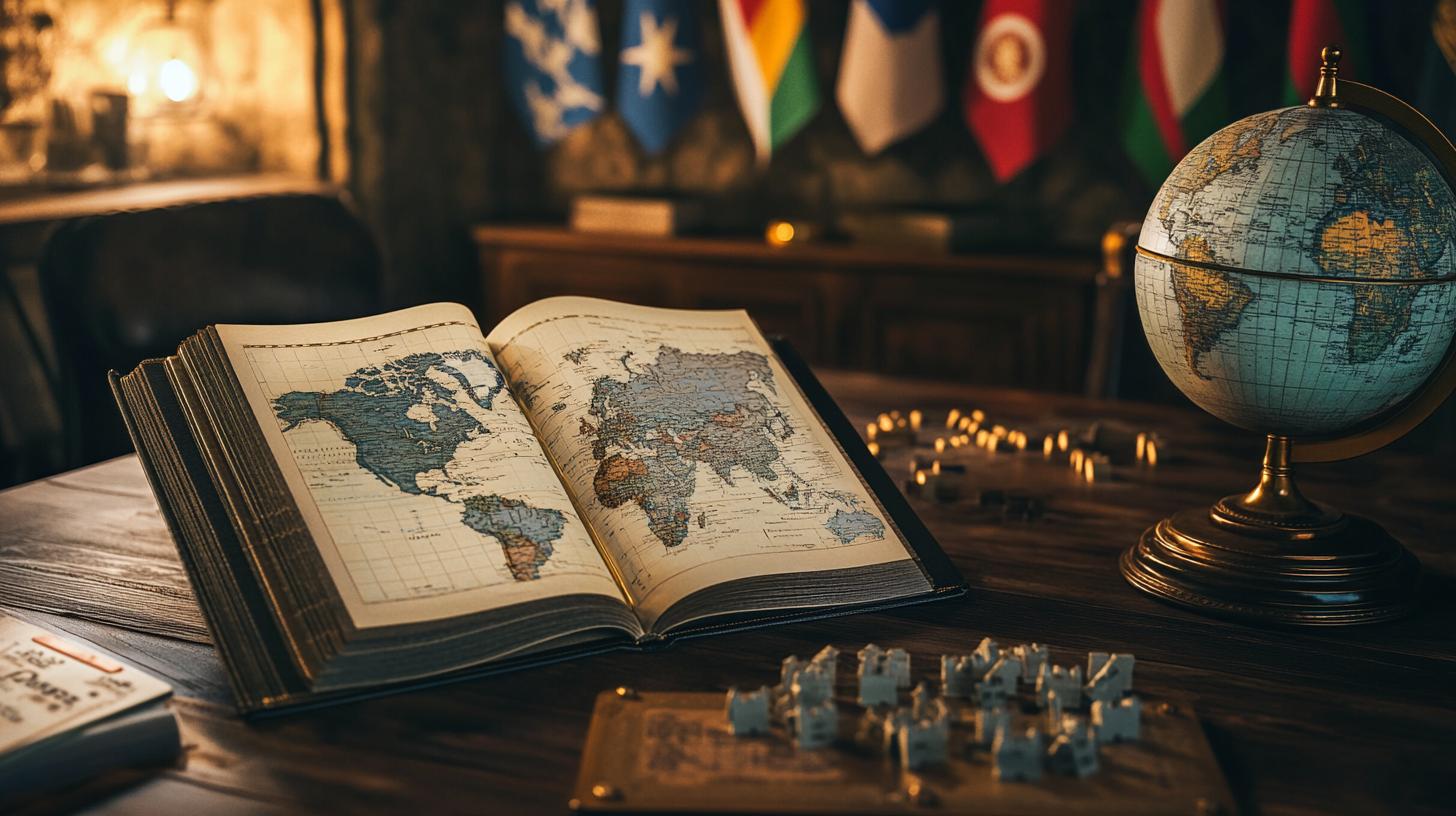How to Play as France in Diplomacy: Mastering Gallic Strategy
If you’ve ever dreamt of guiding the fate of the French Republic on the turn-of-the-century map, learning how to play as France in Diplomacy will thrill your strategic senses. France sits in a powerful corner of the board with valuable coasts, central supply centers, and diplomatic deadlines that can turn allies into adversaries overnight. In this guide, we’ll delve into every facet of Gallic gameplay, from historical context to concrete opening moves, negotiation tips, mid-game alliances, and endgame tactics. You’ll learn why France’s position demands flexibility, persuasive charm, and a willingness to make bold gambits. Whether you’re a veteran looking to refine your skills or a newcomer eager to dominate the board, these insights will help you forge a path to victory. Prepare to embrace the elegance, intrigue, and power plays that define how to play as France in Diplomacy.
Overview of France’s Position on the Map
Historical Context and Board Geography
France begins the game with key supply centers in Paris, Brest, Marseilles, and Belgium—four of the eighteen required for victory. Its western coastlines, English Channel and the mid-Atlantic position, create both defensive bastions and tempting targets for England and Germany. The proximity to Germany, England, Italy, and Spain means you must manage multiple relationships simultaneously. Understanding this context is vital to mastering French openings and mid-game negotiations.
Strengths and Weaknesses
One of France’s greatest strengths is its flexible fleet positioning: Brest can strike into the North Sea or the Mid-Atlantic Ocean, while Marseilles can support Spain or threaten Italy. Politically, France is often seen as a “nice guy” by other players, which can ease alliance-building. However, these advantages come with potential drawbacks: Germany can quickly invade via Burgundy or Ruhr, and England may contest your Channel. Recognizing these vulnerabilities allows you to develop a proactive rather than reactive strategy.
Key Strategies to Dominate as France
Early Opening Moves
The opening turns set the tone. Popular French openings include “Brest–MAO” to contest the Mid-Atlantic Ocean or “Brest–IRI” to challenge England in the Irish Sea. Alternatively, “Marseilles–Spain” fosters an early Franco-Spanish alliance but risks ceding influence in the Mediterranean. Your choice should reflect your negotiation style: aggressive naval pressure or diplomatic back-channeling with Iberia. Prioritize clarity with your neighbors to avoid misinterpretations that can spark premature conflict.
Proven Opening: Brest to MAO
- Brest > Mid-Atlantic Ocean: prevents England from a secure opening, signals offense.
- Paris > Burgundy support: holds a defensive line against Germany.
- Marseilles > Spain: builds goodwill with Iberia or secures a Spanish alliance.
In simulations and club play, this opening leads to strong naval positioning and options to pivot west or south by Turn 3–4. Communicate your intentions clearly to both England and Spain to avoid early blow-ups.
Mid-Game Diplomacy Tips
Once the mid-game arrives, alliances start to solidify. Leverage your reputation to broker multi-party deals. A classic “pas de trois” involves France, England, and Russia applying pressure to Germany. Alternatively, a southern axis with Italy can isolate Austria. Always ask, “What does each power need right now?” and frame proposals around mutual benefit. Keeping accurate notes on verbal agreements helps avoid “he said, she said” disputes.
Endgame Tactics
By the final phases, you’ll likely hold 5–7 supply centers. It’s time to convert alliances into decisive action. Offer one final goodwill concession—perhaps allowing Italy a center or England a fleet—to keep one ally busy while you focus on a primary target. If you’re up against Germany, cut off their retreats. If Italy is your final rival, concentrate fleets in the Western Med. Stay vigilant for surprise treacheries and always maintain at least one reserve fleet for rapid response.
Common Challenges and How to Overcome Them
Dealing with England’s Naval Power
England and France have a natural naval rivalry. To counter a powerful English fleet, align your Brest fleet aggressively, block English expansions into Belgium with Burgundy support, or pivot fleets toward the Channel to deter English incursions. A temporary naval alliance, backed by clear turn-by-turn agreements, can transform a two-front war into a coordinated push against Germany or Russia.
Balancing Relations with Germany and Italy
Germany’s central position grants it options to strike east or west. To keep Germany in check, emphasize a defensive posture in Burgundy—communicate that any aggression will trigger a Franco-Engl-Rus coalition. With Italy, share a common interest in containing Austria in the south. Offer verbal guarantees on Naples or Tunis in exchange for Italian support against Austrian or Turkish advances.
Case Study: A Sample Game Analysis
Game Flow and Pivotal Decisions
In one recorded Diplomacy Club match, France opened Brest–MAO, Paris–Burgundy, and Marseilles–Spain. By Turn 3, British fleets were contained, and Spain agreed to neutrality in exchange for Marseilles support. Germany focused east, giving France breathing room. By Turn 5, France controlled seven centers and brokered a multi-power pact to slice Italy in two.
Turning Points and Lessons Learned
The critical moment occurred when France honored its promise to cede Galicia to Russia, reinforcing trust among players. This credibility netted a promised fleet in the Black Sea to check Turkey. That single gesture of goodwill highlights the power of follow-through: reliable commitments foster alliances that last into endgame, enabling a focused bid for victory.
SEO Optimization for Your WordPress Post
Meta Description Suggestions
Include a concise meta description under 160 characters that naturally incorporates “how to play as France in diplomacy.” For example: “Learn how to play as France in Diplomacy with winning opening moves, mid-game negotiation tips, and endgame tactics to dominate the board.”
Internal Linking Best Practices
In your WordPress site, link this article to related posts for enhanced SEO. Example internal links:
- Top Diplomacy Opening Moves Explained
- 7 Proven Diplomacy Negotiation Tips
- How to Master Endgame Tactics in Diplomacy
These internal anchors spread link authority and improve user retention. Use descriptive anchor text and maintain a logical site structure.
Your Path to Gallic Glory
Now you’ve absorbed the essentials of how to play as France in Diplomacy: from dynamic openings to persuasive mid-game alliances and closing strikes that seal victory. Take these strategies to your next game night or online lobby—execute them with confidence and courtesy. Ready to claim Paris, Brest, Marseilles, and beyond? Rally your allies, sharpen your words, and let the map bear witness to your Gallic genius. For more in-depth guides and community insights, subscribe below and join the debate in our forum. The world of Diplomacy awaits your command!


